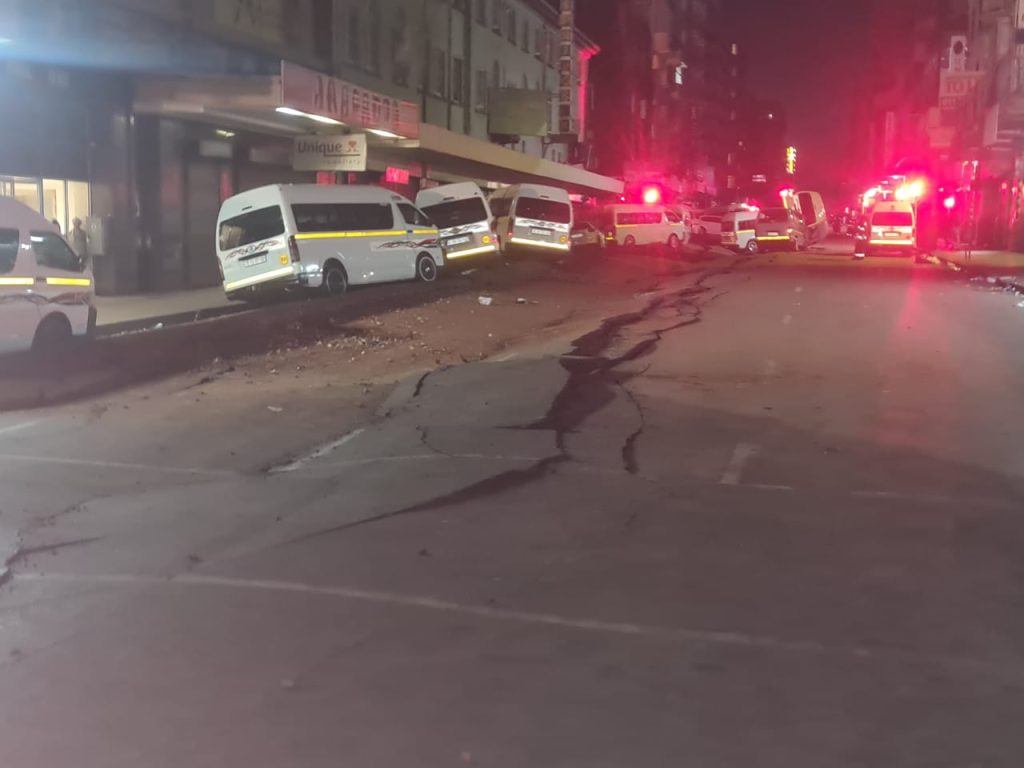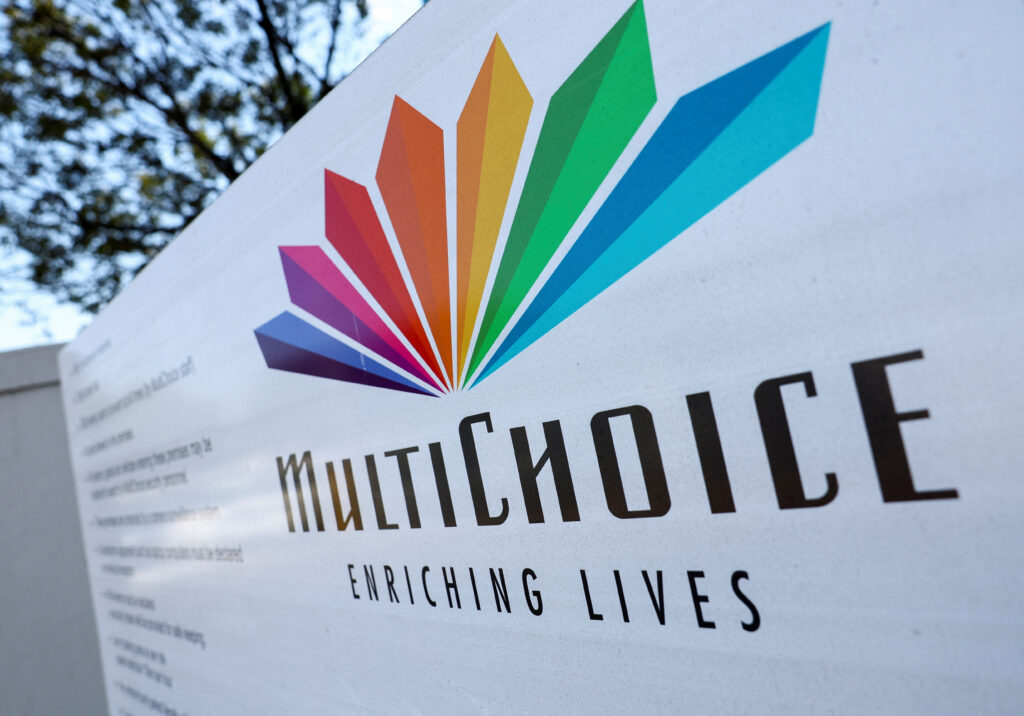You can also listen to this podcast on iono.fm here.
ADVERTISEMENT
CONTINUE READING BELOW
JEREMY MAGGS: Now, this week agriculture taking centre stage in the Free State as the 2025 Nampo [National Maize Producers Organisation] Harvest Day kicks off, it brings together farmers, financiers, policy makers and innovators. One of the most important players in the space this year is the Land Bank.
It’s returning to the show with a renewed focus on inclusion, blended finance and the future of sustainable farming. In that respect, I want to talk now to Themba Rikhotso, chief executive officer of the Land Bank. I want to talk about how the sector is growing, adapting to both feed the country and the continent in the decades ahead.
So, Mr Rikhotso, a very warm welcome to you. First of all, the Land Bank speaks of championing inclusion and innovation. But I wonder, as the bank says, that if we’re moving fast enough in this country to transform the agricultural sector, where land access and finance still remains out of reach for so many people?
THEMBA RIKHOTSO: Ja, thank you very much, Jeremy. I really appreciate the time.
Are we moving fast enough to transform the sector? I think the answer will be no. We’re certainly not moving fast enough, but are we making some inroads in terms of transforming the sector? I will most certainly say yes. Especially when I look at some of the work that we are doing from the Land Bank.
If I consider the last 24 months, we were able to actually support around 387 new black farmers into the sector and that is to the value of just over R3 billion under the blended finance scheme. When I look at a lot of these farmers who we have brought in, they are now getting into mainstream agriculture and starting to get into a lot of the key commodities and key sectors of the sector.
That, Jeremy, will most certainly help us as a country to transform the sector and start to get the transformation going. However, of course there’s still a lot more work that we need to do. The numbers that I’m talking about will, of course, though important, not really make even a dent in terms of transforming the sector and start to correct some of the historical issues that were there, but most certainly we’re moving in the right direction.
JEREMY MAGGS: You are promoting blended finance. Can you give me a real-world example of how this is tangibly helping an emerging farmer, not just the theory?
THEMBA RIKHOTSO: Ja, most certainly. So whenever we talk about blended finance, we’re talking about blending a grant and a loan together to come up with an affordable financing package for the farmer. Let’s take a dairy farmer in Alexandria in the Eastern Cape, who is one of our clients. He has got a dairy parlour where he is farming almost 1 000 cows there, and to actually have a profitable farming operation for dairy, you need, give or take, about R80 000 to R120 000 per cow.
So imagine somebody with 800 cows. That’s about R80 million. That would be unaffordable for a black farmer. So with blended finance, we are able to give him, out of the R80 million that he requires, we are able to give him at least 40% of that as a grant and 60% of that, of course, as a loan.
That creates affordability for him and all of a sudden, he’s able to do many other things, he can unlock operational efficiencies and be able to operate effectively. Of course, the grant portion also becomes an equity into his business. Traditionally, he was going to be expected to put his own equity into that financing. It’s very expensive. He wasn’t going to have any money at all.
We also bring in other elements, 6% of the financing package is able to cover his insurance, and we bring in the technical skill set as well. About 2% of that financing package covers the technical providers who will come and help him to be able to farm profitably.
So we’re not blending just money. We’re bringing in all the other things. That is a real-life example of many of the transactions that we have done, where blended finance is able to make it possible.
JEREMY MAGGS: Having said that, though many farmers might say the biggest barrier isn’t capital, but it’s red tape, it’s permits, delays, zoning. Why is the Land Bank not using its influence more to tackle these bottlenecks more forcefully?
THEMBA RIKHOTSO: You are 100%. There is a lot of red tape and delays in many different parts of the ecosystem. I think to answer your question directly, why is the Land Bank not using its influence to unlock efficiencies? We certainly are using our influence, and I’ll give you a couple of examples.
ADVERTISEMENT:
CONTINUE READING BELOW
One is with the Department of Planning, Monitoring and Evaluation, we’ve signed an agreement where we use them to help us to talk to certain government departments and bring them to the party to move faster.
With the Department of Water and Sanitation, where we have delays in terms of the water use licences, we have got an agreement with Dr [Sean] Phillips, where whenever we have farmers who are looking for water use licences, we are able to actually fast track them, make them jump the queue and get those Land Bank related farmers, get their water use licences to move quicker.
Similarly, we have spoken with the various provincial departments when it comes to EIAs [Environmental Impact Assessment] to get them to prioritise the EIA for many of our clients.
So where it’s national departments or even provincial departments, we are most certainly working very closely with many of those to unlock efficiencies. Of course, there are many other issues, and we have got to get into many of those other issues and be able to start assisting farmers, but certainly we are doing that already, Jeremy.
JEREMY MAGGS: What about the Land Bank itself? I’d suggest to you that it’s had to build or rebuild trust after past governance and also liquidity problems. Are there safeguards now in place to ensure that the support model that you’re talking about is both scalable and sustainable?
THEMBA RIKHOTSO: Most certainly. Currently, there are actually all the controls and the safeguards in place. As you know, we went into financial default in April 2020, which created many problems. I always say that you don’t get into a debt default without having major challenges in the business, and we actually accepted that as a reality.
The board approved the turnaround strategy of the bank, which actually led us to do a complete organisational restructure and relook at the operating model. That was approved at the end of financial year 2023, in April 2024 we effected that, and that resulted in us bringing in various other core functions and services that are required to run the bank appropriately.
We used the entire financial year last year to capacitate the bank.
We have looked at our points of representations in the various provinces and identified the key agricultural nodes where we had to bolster our presence.
We have hired skills, we went to the private sector. Myself, I come from the private sector in commercial banking. We went around and brought in experts who are now actually running the key functions of the bank.
So we are now fully capacitated. We have the governance in place. We had to also bring in an expert to look at our operational efficiencies and re-engineered our processes. So at this point, Jeremy, I can tell you that we have the right capabilities, the controls in place, and we are ready to perform our mandate and actually help the sector.
JEREMY MAGGS: Talking to us from the Nampo Harvest Day. It’s one of the largest agricultural exhibitions under private ownership in the Southern Hemisphere. My thanks to Themba Rikhotso, who’s chief executive officer of the Land Bank.
Follow Moneyweb’s in-depth finance and business news on WhatsApp here.

 1 week ago
1
1 week ago
1






















 English (US) ·
English (US) ·